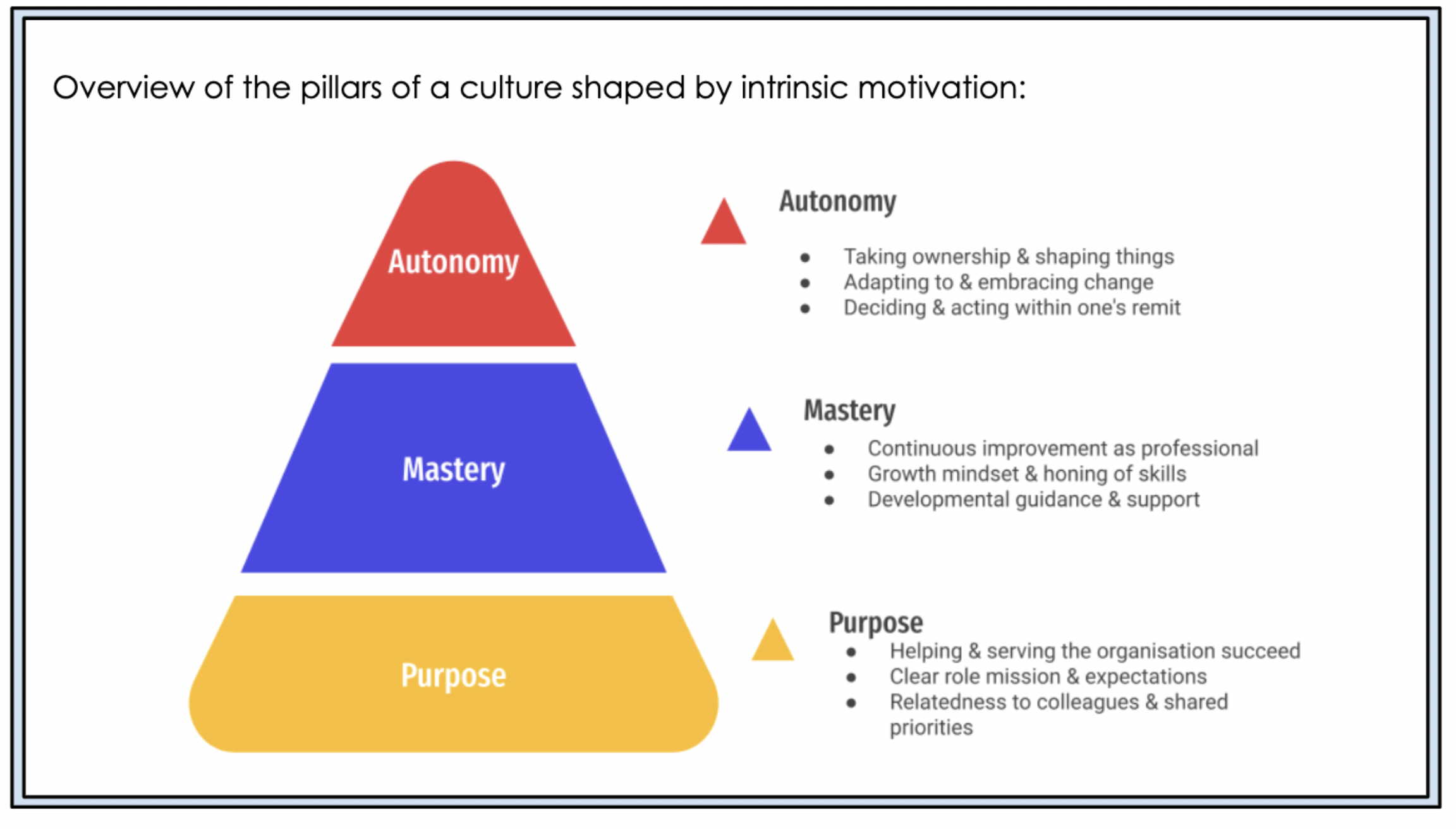05/12/2022
Transformation, Insights
How can we harness the full potential of Integrated Care Boards? - Part 1
Can leaders across the NHS manage the transition to Integrated Care Boards (ICBs) in a way that enthuses staff and unleashes the full potential of this change? Our Transformation team shows how they can, using the theory of intrinsic motivation.
The introduction of Integrated Care Boards (ICBs) means that health and social care organisations, along with partners in housing, education and third sector organisations, are having to work together more closely than ever before. Together, they are tasked with tackling wider determinants of health, across the population.
But this is not the first restructuring and reorganisation that health and care leaders, and colleagues, have lived through - from the introduction of Primary Care Trusts (PCTs), to the Clinical Commissioning Groups (CCGs), and now the abolition of CCGs to pave the way for Integrated Care Systems (ICSs).
Through this widespread change there is staff fatigue, immense pressures, and backlogs faced by the healthcare system from the pandemic and beyond. Shifting mindsets and adapting to new ways of working will be challenging.

How can leaders manage the transition to ICBs in a way that enthuses health and care colleagues to unleash the full potential of this change?
In this article, we consider theories of intrinsic motivation, and how these might allow us to explore new perspectives on change management in health and social care integration. In particular, we consider how the application of intrinsic motivation can inform approaches to overcome two key challenges and considerations for ICBs:
1. Cultural:
- Given the history of NHS restructuring and reorganisation; how can we enable leaders and staff to view this change differently…and to avoid falling back into previous ways of working?
- How can ICBs enable a dual focus on both the needs of local communities, and system wide equity and population health?
2. Relational (flexibility to delegate):
- How can and should the ICBs delegate functions in practice?
- As part of this, how can ICBs strike a balance between a focus on collaboration and shared priorities, whilst also holding individual organisations accountable for improving outcomes in their patch?
Addressing cultural challenges: how can we build a culture that sharpens ICBs’ focus on population health and shared priorities?
One of the ICBs’ core objectives is “bringing the NHS together locally to deliver shared priorities, with a greater emphasis on collaboration and shared responsibility for the health of the local population.”
We can define a set of key pillars linked to aspects of culture and behaviours that enable “systems working” to truly flourish:
A sense of Purpose
A sense of purpose originating from the knowledge of how each individual team member, service and organisation, helps in advancing towards the ICS’ shared priorities.
- For ICBs to flourish, it is necessary for senior leadership and service leaders to guide teams through the structural changes, and to promote understanding of how this benefits patients.
- To bring local authorities, voluntary and third sector organisations on board, ICBs need to ensure that these stakeholders are empowered to share learnings, through transparent and inclusive decision-making
The Pursuit of Mastery
The pursuit of mastery for each individual and organisation’s continued development and improvement of skills - supported and guided by their peers and leaders. This allows them to not only grow their skillset as individuals, but enables them to better fulfil their roles and responsibilities.
Autonomy
Autonomy as each individual and organisation is given more ownership over decision-making, and the opportunity to reach higher levels of self-determination. This is supported by their pursuit of Mastery, and strong sense of Purpose.
A strong foundation in these pillars enables all individuals, services and organisations involved with the ICB to perform their best, whilst ensuring each of them maintains a healthy level of autonomy - this can support ICB leaders in aligning the newly integrated constituents to a shared vision, under the ICS umbrella.

In summary, cultivating intrinsic motivation can contribute to the following examples of cultural and behavioural benefits for newly formed ICBs:

Addressing relational challenges: how can we set out a new approach to delegating ICB functions - going from ‘inspecting’ to ‘nurturing’?
The second key challenge relates to how ICBs delegate functions in practice. As detailed by The King’s Fund, there is a danger that ICBs will “focus first and foremost on well-established NHS concerns, operating similarly to the [CCGs] they will replace at a larger scale…with less connection to local communities and local government as a result”
ICB leaders need to serve as ‘talent nurturers’ for their teams, local communities, service leaders, and partner organisations. They should delegate responsibility and functions in a way that promotes and nurtures the three key pillars of intrinsic motivation - guided by instilling a sense of purpose, mastery and autonomy in the people they work with.
It is then essential to rigorously measure and track data related to ICB delegated functions, monitoring whether these functions fulfill their responsibility of improving service and area-specific outcomes. However, tracking should not be used to merely ‘inspect’ the ‘delegates.’ ICBs play a role in providing developmental support, and driving forward improvement efforts across organisations; not losing sight of the three key pillars.
In particular, ICBs will need to retain all of the important commissioning knowledge of CCGs, transitioning from a performance management mindset to a partnership and support function; sharing their expertise and working side-by-side with partner organisations to design and deliver equitable, high quality services for residents.
The table below emphasises the importance of role modelling aspects of autonomy, mastery and purpose - going from the ICB, to local communities and teams, as well as to service leaders and front line staff.

By instilling the three pillars of intrinsic motivation across ICBs, we can:
- Foster rewarding careers for individuals, supporting and empowering them in their work to improve patient quality of care, and enabling them to view the transition to ICBs as directly beneficial for patients
- Realise the full potential of ICBs, to enable genuine collaboration across the integrated care system
So how do we achieve this in practice? We'll be following very soon with a Part II of ‘Harnessing the full potential of ICBs’, where we present practical steps for cultivating intrinsic motivation in ICBs using an ‘Integrated Interventions Framework’.
Authors: David Schneider (Innovation Office), Elanor Bond and Nivedita Prasad
Latest News & Insights.

The PSC is committing to new, more challenging sustainability targets
We are delighted to announce that we are committing to new, ambitious emission…

What does a good net zero programme look like for Integrated Care Systems?
The NHS has committed to reaching net zero in 2045 and Integrated Care Systems…

The PSC Wins Double Silver at the HSJ Partnership Awards 2024
We are delighted to announce that we have been awarded double silver at The HSJ…